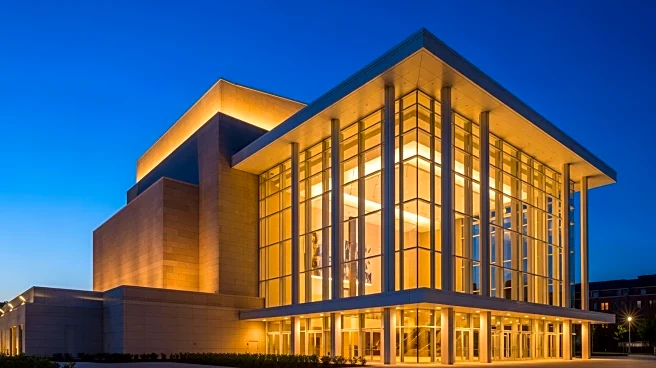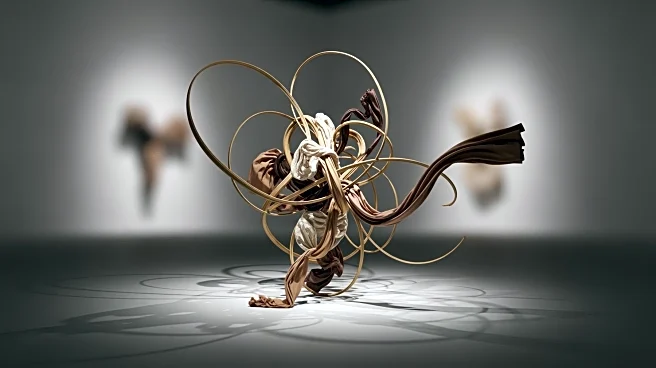What's Happening?
D'Angelo, the Grammy-award winning R&B singer known for his contributions to the neo-soul genre, has died at the age of 51. His family confirmed his passing due to cancer, expressing gratitude for the legacy of music he leaves behind. D'Angelo's career
was marked by his ability to blend classic soul, funk, gospel, and jazz with hip-hop sensibilities, creating a unique sound that resonated with audiences worldwide. His debut album, Brown Sugar, and subsequent releases, Voodoo and Black Messiah, solidified his status as a pioneering artist. Despite his reclusive nature, D'Angelo's influence on music and culture remains profound.
Why It's Important?
D'Angelo's death is significant as he was a key figure in the neo-soul movement, a genre that has shaped modern R&B. His innovative approach to music has inspired generations of artists, and his albums are considered seminal works in the genre. D'Angelo's ability to fuse different musical styles has left a lasting impact on the industry, influencing both contemporary and future musicians. His passing has prompted tributes from fellow artists and fans, underscoring his role as a visionary whose music transcends time.
What's Next?
Following D'Angelo's death, the music industry is likely to honor his legacy through tributes and celebrations of his work. His influence on neo-soul and R&B will be revisited, and his music may experience renewed interest as audiences reflect on his contributions. The industry may also engage in discussions about the challenges faced by artists, including the pressures of fame and personal struggles, highlighting the need for support systems within the music community.
Beyond the Headlines
D'Angelo's career highlights the complexities of artistic identity and the pressures of commercial success. His reluctance to embrace the 'neo-soul' label reflects broader issues of genre categorization and artistic freedom. D'Angelo's music, deeply rooted in cultural and social themes, serves as a testament to the power of art to inspire change and address societal issues. His legacy prompts reflection on the role of artists in shaping cultural narratives and the importance of preserving artistic authenticity.


















